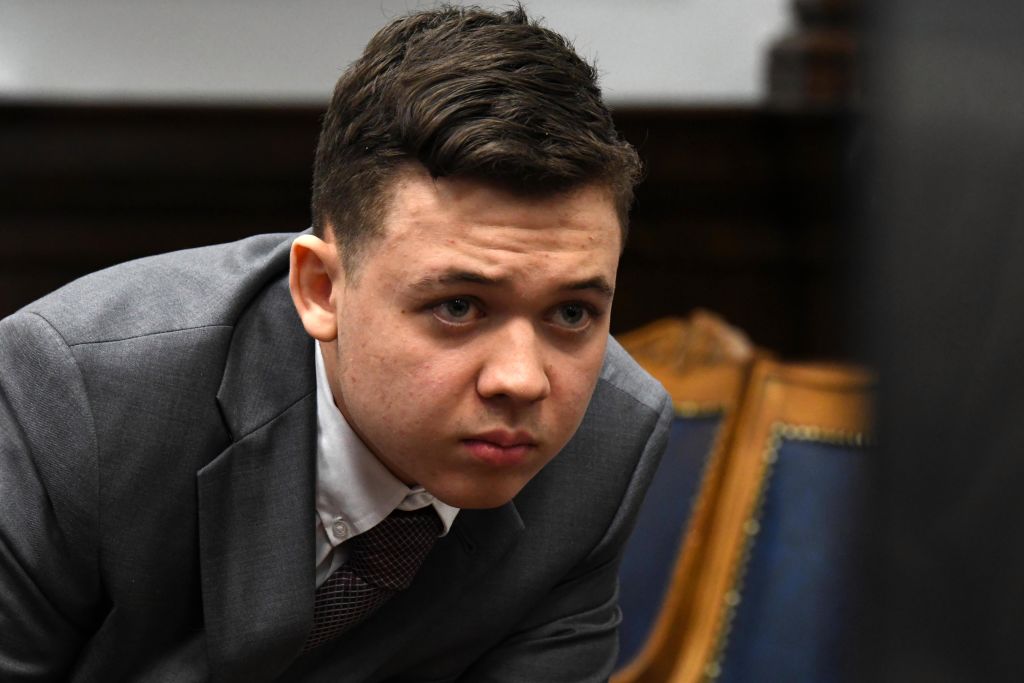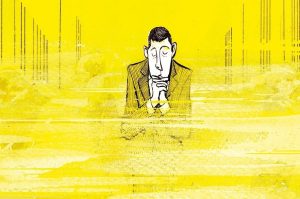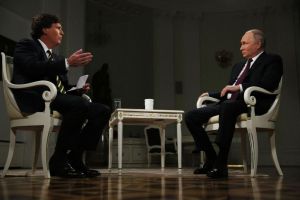When I was 16, I threatened to carry out a school shooting. Okay, not really. I was sitting in math class with my hand up, trying to get the teacher’s attention. He called on one student, then another, then another. After the fourth or fifth time he failed to take my question, I became frustrated and said to myself something along the lines of “Oh my God, I’m gonna start shooting people.”
I had no plans to harm anyone. It was a dumbass thing to say, even under my breath. You were 16 once, and I’m sure you said your share of dumbass things too.
The timid farm girl in front of me overheard my comment and reported it to the principal. I was suspended for a few days and had to get a letter from a shrink saying I posed no threat to my fellow students. Soon, I was back in school. A year and a half later I graduated as valedictorian, a goal I pursued in large part out of spite. My classmates and teachers thought I was a monster? Well, I’d show them.
In hindsight, I understand why the girl who came so close to ruining my life was afraid. I loved guns, weapons of all kinds really, and I made no secret of it. I posted Facebook photos of myself brandishing rifles and pistols at the gun club where I’d go shooting with my father. I also accompanied him on frequent trips to a local gun store, where the proprietor and one of his employees became surrogate uncles to me. I bought switchblades and even a telescoping police baton from a flea market. Sometimes I’d walk around with a spring action karambit in my back pocket, a buck knife in a belt sheath, and a flat dagger hanging handle-down around my neck. I can remember watching TV one night with a loaded 9mm on the coffee table next to me after my dad had received some vague threats stemming from his involvement in local politics.
Was my classmate’s fear an unfair prejudice against a kid with a not-terribly-unusual hobby? Or was it something I had, albeit unconsciously, been cultivating? I didn’t fit in very well, and I think part of me liked being seen as dangerous, to be dangerous. It was better than the alternative. I could have been Kyle Rittenhouse.
Jordan Peterson has made a name for himself by railing against the idea that “any active engagement on the part of young men…is indistinguishable from an unacceptable power and dominance drive.” He urges young men to harness their dangerous side, to embrace the Abrahamic call to adventure, to have a sword and know how to use it but keep it sheathed unless absolutely necessary. Whether he’s familiar with Jordan Peterson or not, Kyle Rittenhouse is a member of his target audience and one of his spiritual children. So, in a way, is Gaige Grosskreutz.
The fashionable condemnation of toxic masculinity leaves men, especially those lacking in self-discipline, with two options. One is to become a good male feminist and be relentlessly mocked and rejected for your trouble. Those who cannot bear total emasculation are allowed to compensate with rants about stomping the white cis-hetero-patriarchy and guillotining the bourgeoisie. The other is to fully embrace the toxic side of masculinity. These incels, pick-up artists, and Nick Fuentes enthusiasts would rather be reviled than patronized. They seethe with hatred for globohomo and blame their failure to form families on the supposed impossibility of finding a woman with a “body count” under fifty.
And yet, in practice, these two groups have plenty in common. They’ve both taken the blackpill. Imagine a young man who has given up looking for work. He spends his days smoking pot, playing video games, bullying people online, and jerking off to porn. Oh, and he has an anime profile picture. Is he left-wing or right-wing? Marxist or white nationalist? Edgelord atheist or schizoid Orthodox? It hardly matters.
Some of the basement-dwellers might be satisfied with these simulacra. In his book The Decadent Society, Ross Douthat describes this phenomenon as “a kind of digital-age playacting in which young people dissatisfied with decadence pretend to be fascists and Marxists on the Internet, reenacting the 1930s and 1960s with fewer street fights and more memes.”
Fewer street fights, not none. Call it LARPing if you want, but the braver and more disciplined souls among both camps of the disaffected will inevitably put their ideologies into practice. They agree with most of the memes, but the soft petulance of the very online is not for them. They are doers. Even those whose ideology decries their masculinity cannot eradicate from their souls the masculine urge to create or destroy.
Kyle Rittenhouse and Gaige Grosskreutz are two such young men. The Week’s Samuel Goldman referred to them as a pair of America’s “lost boys” in a piece that’s worth quoting at length:
Rittenhouse seems to have combined vague political justifications with a powerful sense that something important was happening and he belonged in the middle of it. The nominal issue—police brutality—was probably been less important than the chance to take risks in defense of some principle, however vague or attenuated. That desire doesn’t always lead to deadly violence, fortunately. But it’s widespread among males, who yearn to be strong men.
It’s difficult to express this yearning healthily in America today. There are essentially two ways to do so, which map perfectly onto Jordan Peterson’s beloved order/chaos spectrum. Choose, like Rittenhouse, to keep the barbarians from the gate, and you’re likely to be called a fascist or a white supremacist. Resolve, like Grosskreutz, to overthrow the tyrant, and you’ll quickly find your liberationist ideals appropriated by the Fortune 500 and derailed by woke histrionics.
Tragic as the events in Kenosha were, they showed that a certain vital energy still survives in this country. As Senator Josh Hawley said at the National Conservatism conference, “America needs men” and “the manly virtues.” We can afford neither to abandon them entirely nor to allow them to become the exclusive preserve of one faction or the other.
This is why I reject the common argument, deployed by Kenosha prosecutor Thomas Binger and innumerable Twitter users, that Rittenhouse should have simply stayed home that night. At best, it’s a unilateral disarmament. Grosskreutz was also packing heat that night (illegally, I might add), and he came to Kenosha from farther away than Rittenhouse. To expect right-wingers to huddle indoors while Antifa trashes the city is an absurd double standard. It would divide Americans by ideology the same way students were divided by sex on 1950s college campuses, where the women obeyed a strict curfew while the men ran wild all night.
Making the argument even-handedly might be even worse. To say that neither Grosskreutz nor Rittenhouse should have been in Kenosha that night is to say that we have no need of young men willing to run into danger in service of their fellow citizens and of a higher cause. That is false. We need more men like that. But they also need us. If we want to avoid a repeat of Kenosha, we have to help these kids channel their energies properly, and we have to build a society in which they have a part to play. I know. I was one of them.
Grayson Quay is a Young Voices associate contributor based in Arlington, VA. His writing has been published in the Pittsburgh Post-Gazette, Modern Age, and The American Conservative.


















